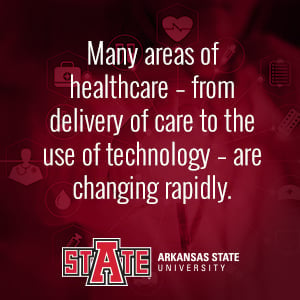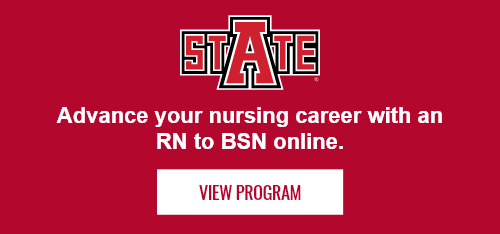
Many changes are occurring in healthcare, in areas ranging from technology to the delivery of patient care. So it is not surprising that the role of professional nurses continues to evolve. A Bachelor of Science in Nursing (BSN) is now the recommended level of education for employment as a registered nurse (RN). Nurses also have to be technologically savvy while demonstrating cost efficiency as they provide quality care. Nurses are not just at the bedside anymore, recording vital signs and dispensing medicine; instead they are taking on positions of greater responsibility.
What Roles Do Professional Nurses Hold in Healthcare Today?
Florence Nightingale introduced novel concepts to the nursing practice that decreased mortality rates. Her contributions, such as establishing the need for sanitation, recognizing dietary requirements, providing round-the-clock patient care, instituting triage, collecting statistical evidence, encouraging education and promoting advocacy, form the foundation of nursing. While these nursing fundamentals are the most important components of the practice, nurses today are expanding their role as caregivers to include much more:
Communicator
Nurses are prepared to collaborate with a healthcare team to effectively perform treatments and procedures. Thus, nurses manage patient care. They ensure cohesive and coordinated care for successful patient outcomes.
Holistic Caregiver
Healthcare should address a patient’s cultural, spiritual and mental needs. Increasing diversity in a growing patient population requires nurses to demonstrate cultural awareness and sensitivity. Patients may have specific needs and preferences due to their religion or gender, for example. Nurses need to be respectful of, and knowledgeable about, diverse backgrounds while remaining vigilant in providing quality care.
Instructor
Technology goes hand in hand with healthcare, and providers are using new types of machines and applications every day. Medicine is becoming personalized requiring nurses to instruct patients about medical apps that can enhance traditional care. Patients can now use apps to monitor their glucose, track their blood pressure or access helpful information.
Specialists
Many patients are older with multiple, multifaceted health conditions. By choosing the appropriate medical specialization, nurses can address complications related to diabetes, obesity, heart problems, kidney disease and dementia.
Researcher
Nurses use research to deliver care. They gather and analyze data to glean insights they can apply to facilitating patient care and pinpointing best practices.
What Are Some Trends in Nursing?
In their contemporary role, nurses are more involved with improving a patient’s experience, reducing medical errors, lowering costs and decreasing hospital readmissions. In addition to branching out into new areas like health coaching to prevent diseases and cultivate a dedication to healthy living, they are also pursuing positions in the following emerging fields:
- Informatics.
- Genetics.
- Genomics.
- Telehealth.
Many nursing schools and healthcare organizations are following the recommendation found in the 2010 report The Future of Nursing: Leading Change, Advancing Health published by the Institute of Medicine (IOM), which was renamed the National Academy of Medicine (NAM) in 2015. The IOM report suggested that 80 percent of nurses should hold a BSN by 2020.
The demand for highly educated nurses will keep rising because large numbers of nurses with Master of Science in Nursing (MSN) and Doctor of Philosophy in nursing (Ph.D.) degrees are retiring. Moreover, nurses with advanced degrees are needed for positions in academics, family care and oncology.
Why Is Socialization, Accountability and Advocacy Important in Nursing?
Socialization in nursing is an integral part of developing a commitment to the profession. Through skillful and responsible performance, nurses can secure their professional development, which contributes to their socialization along with a sense of belonging and purpose.
Accountability is an obligation or willingness to uphold certain standards. Nurses sometimes have to make quick judgments or take charge of a situation, so accountability is a factor in their profession. Nurses who are accountable take responsibility for their actions. They accept all consequences and do not make excuses.
In protecting a patient’s medical, legal and human rights, a nurse serves as an advocate. The nurse’s job is to inform and support patients when they have questions or are apprehensive about a treatment, procedure or any other aspect of their care.
The evolving role of professional nurses is intertwined with technology. Even though technology is integral to nursing, nurses provide the human touch and are still at the forefront of patient care. No matter what type of healthcare setting they work in, they have the most interaction with patients. Nurses assess and monitor patients and relay information to other care providers. With the advent and spread of mobile technology and telemedicine, nurses are no longer confined to practicing in physical buildings. They are able to assist patients in their communities and homes, in person or with the use of mobile technology.
Learn about the Arkansas State University online RN to BSN program.
Sources:
Edison Nation: 3 Ways Florence Nightingale Brought Innovation to Nursing
Nurse Journal: 7 Future Trends for Nurse Practitioners
RCNI: Patient Advocacy: The Role of the Nurse
British Heritage Travel: Florence Nightingale
The Houston Chronicle: Role of a Nurse in Health Care
Hospitals & Health Networks: The Changing Role of Nurses
Robert Wood Johnson Foundation: Nurses Take on New and Expanded Roles in Health Care
RN Central: What Exactly Is Patient Advocacy?
American Nurse Today: Accountability: A Concept Worth Revisiting
The National Academy of Medicine: The Future of Nursing: Leading Change, Advancing Health
The Huffington Post: Beyond the Bedside: The Changing Role of Today’s Nurses
NCBI: Professional Socialization in Nursing: A Qualitative Content Analysis

